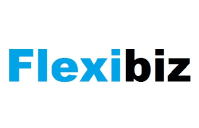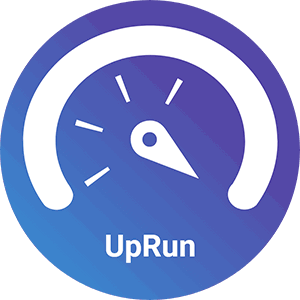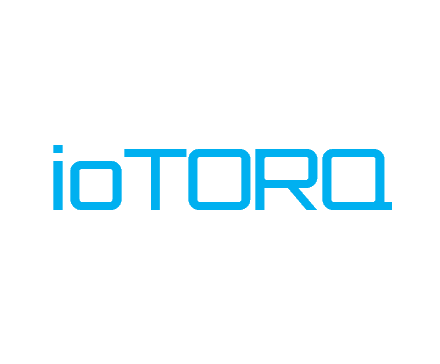Description

Kiran ERP for Manufacturing

TrendMiner
Comprehensive Overview: Kiran ERP for Manufacturing vs TrendMiner
Kiran ERP for Manufacturing and TrendMiner serve distinct needs within the broader industry of manufacturing and process optimization. Here’s a comprehensive overview of each product based on the requested points:
a) Primary Functions and Target Markets:
Kiran ERP for Manufacturing:
-
Primary Functions:
- Manufacturing Planning: Offers modules for production scheduling, inventory management, and resource allocation, helping manufacturers streamline operations.
- Supply Chain Management: Tracks materials from suppliers to delivery, optimizing procurement and logistics.
- Financial Management: Integrates financial accounting, budgeting, and reporting to ensure profitability.
- Quality Management: Incorporates tools for maintaining product quality standards and compliance with industry regulations.
-
Target Markets:
- Primarily aimed at small to medium-sized manufacturing businesses that need robust management of their production and supply chains.
- Industries such as automotive, electronics, consumer goods, and general discrete manufacturing.
TrendMiner:
-
Primary Functions:
- Self-Service Analytics: Provides advanced analytics tools allowing process engineers to analyze, monitor, and predict operational performance without requiring data science expertise.
- Real-time Monitoring: Enables real-time visualization of process data to quickly identify inefficiencies or anomalies in production.
- Predictive Maintenance: Incorporates machine learning algorithms to predict equipment failures before they occur, reducing downtime.
- Contextualize and Optimize: Helps users contextualize data with process events to find opportunities for optimization.
-
Target Markets:
- Mainly caters to the process manufacturing industries such as chemicals, oil and gas, pharmaceuticals, and food & beverages.
- Target users are process engineers, operators, and data analysts who need to extract actionable insights from industrial data.
b) Market Share and User Base:
-
Kiran ERP for Manufacturing:
- Likely occupies a niche segment within the ERP market for small to medium-sized companies. It competes with other ERP providers, so its market share is smaller compared to giants like SAP, Oracle, or Microsoft Dynamics.
- User base consists mainly of SMEs (small and medium enterprises) in manufacturing sectors that do not require the high-level complexity and cost associated with larger ERP systems.
-
TrendMiner:
- Holds a more specific niche in the industrial analytics sector, with a focus on self-service tools for process industries.
- Known for its robust analytics capabilities, it likely has a growing user base among companies looking to operationalize data without heavy IT investment and complex data infrastructure.
c) Key Differentiating Factors:
-
Kiran ERP for Manufacturing:
- Integration with Manufacturing Processes: It is designed to handle a variety of manufacturing-specific operations seamlessly, which is critical for its users.
- Comprehensive ERP Functionality: Offers end-to-end ERP capabilities, covering everything from finance to human resources in addition to manufacturing.
- Scalability for SMEs: Specifically tailored for smaller businesses, offering a lower cost of entry and customizable features compared to bigger ERP solutions.
-
TrendMiner:
- Self-service Analytics: Its key strength lies in empowering users to perform complex data analyses without needing a specialized data science background.
- Process Data-centric: Unlike traditional ERP solutions, it focuses solely on extracting insights from process data rather than managing logistical or financial data.
- Innovation in Real-time Analysis: Aspects like real-time monitoring and predictive maintenance are particularly advanced, catering to companies needing immediate insights and foresights.
These two platforms, while both targeting the manufacturing sector, address different pain points and thus complement different requirements within the industry. While Kiran ERP is centered on operational efficiency in manufacturing management, TrendMiner focuses on process optimization through analytics.
Contact Info

Year founded :
Not Available
Not Available
Not Available
Not Available
Not Available

Year founded :
2008
+32 11 26 38 30
Not Available
Belgium
http://www.linkedin.com/company/trendminer
Feature Similarity Breakdown: Kiran ERP for Manufacturing, TrendMiner
When comparing Kiran ERP for Manufacturing and TrendMiner, we can break down their feature similarities, user interfaces, and unique features as follows:
a) Core Features in Common:
-
Real-time Data Analysis:
- Both platforms offer real-time analytics capabilities. For ERP systems like Kiran, this is essential for inventory, production planning, and managing supply chain data. TrendMiner focuses more on providing process data analytics in real-time to optimize manufacturing operations.
-
Reporting and Dashboarding:
- Both solutions provide comprehensive reporting tools and customizable dashboards to visualize data and track key performance indicators (KPIs). These tools enhance decision-making by presenting clear insights from the collected data.
-
Integration Capabilities:
- Kiran ERP and TrendMiner offer integration with other systems and software, facilitating seamless data exchange across different departments. This is crucial for creating a unified data ecosystem in a manufacturing environment.
-
User Management and Security:
- Both platforms emphasize robust security features and user management capabilities. This includes role-based access control and permission settings to ensure that sensitive data is only accessible to authorized users.
b) User Interface Comparison:
-
Kiran ERP for Manufacturing:
- Typically feature-rich with a detailed interface aimed at providing thorough insights into operational metrics, inventory status, and production schedules.
- Often presents a more module-based interface where different functions or departments can have tailored views specific to their operational needs.
-
TrendMiner:
- Offers a more analytics-focused interface with strong emphasis on visualizations and ease of access to historical and live data trends.
- The interface is designed for intuitive use by engineers and data scientists, with tools that allow for pattern recognition, root-cause analysis, and predictive analytics through an easy-to-navigate dashboard.
c) Unique Features:
-
Kiran ERP for Manufacturing:
- Comprehensive ERP Suite: Kiran ERP covers a wide array of functionalities beyond analytics, including inventory management, procurement, quality control, and financial management, providing an end-to-end resource planning tool.
- Manufacturing Specific Modules: Additional modules tailored for specific manufacturing needs, such as material requirements planning (MRP) and shop floor control.
-
TrendMiner:
- Self-service Analytics: One of the key features of TrendMiner is its self-service analytics capability, enabling users to perform complex data analyses without needing extensive IT support or data science expertise.
- Advanced Pattern Recognition and Predictive Maintenance Tools: TrendMiner offers advanced tools for pattern recognition which are instrumental in predictive maintenance and identifying anomalies in manufacturing processes.
In summary, while both platforms cater to the manufacturing sector, Kiran ERP provides a more comprehensive suite for complete enterprise management, while TrendMiner focuses specifically on advanced data analytics and process optimization. The choice between the two would depend on the specific needs of the manufacturing operation in question.
Features

Reporting & Analytics
Production Management
Supply Chain Management
Financial Management
Quality Assurance

Data Visualization
Collaboration Tools
Process Diagnostics
Predictive Analytics
Best Fit Use Cases: Kiran ERP for Manufacturing, TrendMiner
Kiran ERP for Manufacturing and TrendMiner are distinct solutions that cater to different aspects of manufacturing and process optimization, each having specific best-fit use cases.
a) Kiran ERP for Manufacturing
Best Fit Use Cases:
-
Small to Mid-Sized Manufacturing Businesses: Kiran ERP for Manufacturing is an ideal choice for small to mid-sized manufacturing companies looking to streamline operations, integrate various business processes, and enhance overall efficiency. These businesses often require a cost-effective and comprehensive ERP solution that can manage inventory, production planning, supply chain, and track orders.
-
Discrete Manufacturing Projects: It is particularly suited for discrete manufacturing industries like electronics, automotive parts, or machinery manufacturing, where the need to manage complex bills of materials, production scheduling, and quality control is critical.
-
Customization Needs: Companies that require customizable ERP solutions to fit specific business processes and industry demands will find Kiran ERP for Manufacturing beneficial, as it can be tailored to meet unique operational requirements.
-
Growing Enterprises: Businesses experiencing growth and looking to unify disparate systems into a single platform for better data visibility and operational synergy would benefit from implementing this ERP system.
b) TrendMiner
Best Fit Use Cases:
-
Process Manufacturing Industries: TrendMiner is best suited for process manufacturing industries such as chemicals, oil & gas, pharmaceuticals, and food & beverages. These industries benefit from its advanced analytics capabilities to monitor, predict, and optimize production processes.
-
Data-Driven Continuous Improvement: Companies seeking to leverage historical and real-time data to drive continuous improvement initiatives, reduce downtime, and increase process efficiency will find TrendMiner advantageous. It helps in identifying production anomalies and providing insights for preventive actions.
-
Operational Excellence Programs: Organizations focusing on operational excellence and process optimization will prefer TrendMiner for its self-service analytics that let engineers and operators make data-driven decisions without the constant need for data science expertise.
-
Complex Process Monitoring: Businesses that require advanced process monitoring and the capability to visualize data across multiple parameters will benefit from TrendMiner. It is particularly useful for operations with complex processes that need constant monitoring and optimization.
d) Industry Verticals and Company Sizes
Kiran ERP for Manufacturing:
-
Industries: This ERP solution serves various verticals like electronics, automotive, aerospace, machinery, and consumer goods. It caters particularly well to discrete manufacturers needing robust production and supply chain management.
-
Company Sizes: It primarily targets small to medium-sized businesses that require a scalable ERP solution to manage growing demands. However, it can also cater to larger enterprises with specific customization for complex operations.
TrendMiner:
-
Industries: TrendMiner supports industries that rely heavily on process data analytics, such as chemicals, pharmaceuticals, oil and gas, and food & beverages. It excels in environments where process optimization and quick decision-making based on data insights are crucial.
-
Company Sizes: While TrendMiner can be utilized by companies of various sizes, it is particularly beneficial for medium to large enterprises that have the resources and infrastructure to support advanced analytics and integration with existing systems. Smaller companies aiming to enhance process efficiency may also find its analytics capabilities valuable.
In summary, Kiran ERP for Manufacturing is best for discrete manufacturing-focused organizations seeking comprehensive business process integration, while TrendMiner is tailored for process industries looking to optimize operations through advanced data analytics. Both cater to different needs but can provide exceptional value in their respective domains.
Pricing

Pricing Not Available

Pricing Not Available
Metrics History
Metrics History
Comparing teamSize across companies
Conclusion & Final Verdict: Kiran ERP for Manufacturing vs TrendMiner
Conclusion and Final Verdict: Kiran ERP for Manufacturing vs. TrendMiner
When deciding between Kiran ERP for Manufacturing and TrendMiner, it's important to evaluate them based on the specific needs of your manufacturing business. Both software solutions offer distinct advantages and cater to different aspects of manufacturing operations.
a) Considering All Factors, Which Product Offers the Best Overall Value?
Best Overall Value: Kiran ERP for Manufacturing
While both products serve different purposes, Kiran ERP for Manufacturing provides the best overall value for comprehensive manufacturing operations. It offers a holistic solution by covering a wide range of business processes essential for manufacturing, including inventory management, supply chain logistics, production planning, and financial management. This makes it a more rounded choice for manufacturers looking for an all-in-one solution.
b) Pros and Cons of Choosing Each Product
Kiran ERP for Manufacturing
-
Pros:
- Comprehensive Solution: Offers integrated modules covering all major aspects of manufacturing operations and business processes.
- Scalability: Easily scalable to accommodate the growth of manufacturing businesses.
- Customizability: Can be tailored to fit specific business processes and industry needs.
- Improved Efficiency: Streamlines operations, reduces manual processes, and improves productivity.
-
Cons:
- Implementation Complexity: Can be complex to implement and requires significant time and resources.
- Cost: Higher upfront costs can be a barrier for small or medium-sized businesses.
- Training Requirements: Requires training for staff to effectively utilize the system, which can increase initial costs and time to value.
TrendMiner
-
Pros:
- Data-Driven Insights: Specializes in advanced analytics and offers in-depth process data insights crucial for improving operational performance.
- User-Friendly Interface: Designed for ease of use with intuitive visualization and analytics tools.
- Quick Time to Value: Provides rapid insights and value due to its focus on specific use cases in process optimization.
- Predictive Analytics: Aids in predictive maintenance and operational efficiency with minimal disruption.
-
Cons:
- Niche Application: Primarily focused on analytics and data insights, lacking broader ERP functionalities.
- Integration Challenges: May require integration with other systems for a full operational view, which can add complexity.
- Potential Over-reliance on Data: Organizations may over-rely on data insights, which might not encompass all business processes.
c) Specific Recommendations for Users Trying to Decide:
-
Assess Primary Objectives:
- Choose Kiran ERP for Manufacturing if your primary need is a comprehensive solution that can manage a wide array of manufacturing operations and integrate various business functions.
- Opt for TrendMiner if your focus is on process optimization and advanced analytics to extract deeper insights from your operational data.
-
Evaluate Budget and Resources:
- Consider Kiran ERP if you have the budget and resources for a significant investment in a full-scale ERP solution.
- Consider TrendMiner if you're seeking more cost-effective means to enhance insights and operational efficiencies.
-
Consider Implementation and Usability:
- If you prefer a quicker setup and immediate use, TrendMiner’s analytical tools might offer a faster deployment and quicker ROI.
- For firms prepared for a phased, comprehensive ERP implementation, Kiran ERP is the more robust choice.
-
Scalability Needs:
- If planning for long-term growth and diversification of manufacturing capabilities, Kiran ERP’s scalable platform can effectively support such ambitions.
-
Integration Requirements:
- Verify existing IT infrastructure and third-party systems to ensure compatibility, especially crucial if considering incorporating TrendMiner analytics with existing ERP systems.
In conclusion, your choice should align with your business priorities, technological infrastructure, and future growth plans. Each product has its strengths, and evaluating them against your specific operational needs and strategic goals is essential for deciding the best fit.
Add to compare
Add similar companies




